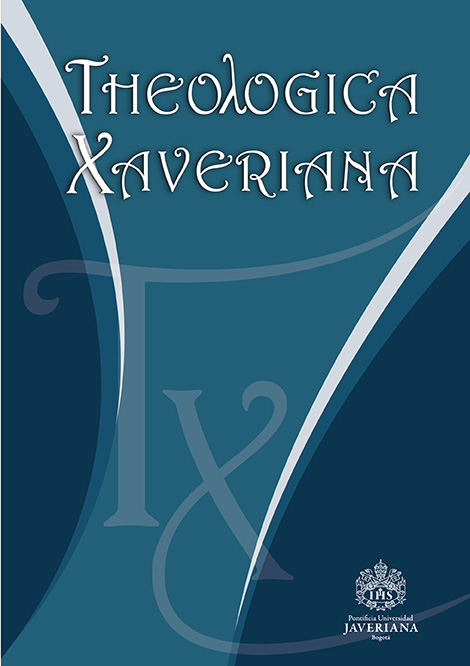Abstract
This article deals with Pentecostal culture based on an analysis of Rivera Letelier’s novel, Hymn of the Angel Standing on One Leg, set in in the 1960s, the saltpeter mining area, in Antofagasta, Chile. Its main objective is to analyze how the concepts of misery, survival, evil, pain and human suffering—characteristic of the social dynamics of the time in that region, and more specifically of the imaginaries embodied in literature—are assumed and resignified from a religious perspective, namely, from a Pentecostal perspective. The theoretical approach is based in the studies of Clifford Geertz, who considers that one of the roles of religion is to assign meaning to pain and suffering as social experiences. In this sense, Pentecostalism does not solve problems, but rather assigns meaning, value and significance to them. This article is divided into three main sections: (1) Time and cultural space. (2) The construction of the masculine and the feminine. (3) The problem of evil and pain. In the first section, we will analyze the relationship between housing and Pentecostal temple as two precarious constructions, where the last one is a flexible space conditioned by worship, as well as by a time and space that provides freedom to religious emotions. Afterword, we refer to the tension between the institutional demands as opposed to the feminine and the masculine, where the subjects finally decide and find their spaces of freedom to make the religious demands more flexible; all of this, despite the mechanisms of control, especially refered to the body, that weigh mostly on women. Finally, in relation to evil and pain, we highlight the different rituals that the author presents, that the Pentecostals carry out as strategies to diminish the chaotic effects in the life of the believer, especially those related to illness and death.
Archivo Nacional de Chile. “21 de diciembre de 1907. Matanza de la Escuela de Santa María de Iquique en 1907”. Archivo Nacional de Chile, http://www.archivonacional.cl/616/w3-article-37531.html?_noredirect=1 (consultado el 4 de diciembre de 2018).
Blaustein, Daniel. “Incursiones en un texto amistoso: Himno del ángel parado en una pata, de Hernán Rivera Letelier”. Escritos 34 (2006): 143-161.
Bravo Campos, Luis Alex. “Literatura y contraemplazamientos: vigilancia, heterotopía, traición y alteridad literaria en Chile… a partir de la ficción narrativa de Hernán Rivera Letelier”. Tesis para optar al grado de Doctor en Literatura Latinoamericana, en la Universidad de Concepción, Chile, 2013.
Donoso-Maluf, Francisco. “Comunitarización competitiva: auge de la Iglesia Metodista Pentecostal de Chile”. Perfiles latinoamericanos 13 (1998): 229-258.
Geertz, Clifford. La interpretación de las culturas. Barcelona: Gedisa, 2003.
González, Sergio. Hombres y mujeres de la pampa. Tarapacá en el ciclo de expansión del salitre. Santiago: Centro de Investigaciones Diego Barros Arana, 2002.
Guerra, Cristian. “La música en el movimiento Pentecostal (1909-1936): el aporte de Willis C. Hoover y de Genaro Ríos Campos”. Sendas (2009), http://www.corporacionsendas.cl/investigacion_musical.php (consultado el 25 de noviembre de 2018).
Guzmán, Nicomedes. La sangre y la esperanza. Santiago: LOM, 1999.
Maíz, Claudio. “La narrativa de Rivera Letelier: los signos de la escasez y la abundancia compensatoria”. Universum 17 (2002): 157-169.
Mansilla, Miguel. La buena muerte. La cultura del morir en el pentecostalismo. Santiago: UNAP-RIL, 2016.
_____. La cruz y la esperanza. La cultura del pentecostalismo chileno en la primera mitad del siglo XX. México: MANDA, CIAL-UNAM, UNAP, 2014.
_____. “Pentecostalismo y ciencias sociales reflexión en torno a las investigaciones del pentecostalismo chileno (1968-2008)”. Cultura y religión 3/2 (2009): 21-42.
Mansilla, Miguel, Sandra Leiva y Wilson Muñoz. “Pospentecostalismo: del fundacionalismo al posfundacionalismo pentecostal chileno”. Cinta moebio 59 (2017): 172-185.
Mansilla, Miguel, y Luis Orellana. “Haciendo memoria de líderes religiosas olvidadas. El reconocimiento póstumo del trabajo de las pastoras en el pentecostalismo chileno”. Sociedad y religión 23/40 (2013): 77-113.
Orellana, Zicri. “La Iglesia Pentecostal: comunidad de mujeres”. Cultura y religión 3/2 (2009): 119-132.
Ostria, Mauricio. “La identidad pampina en Rivera Letelier”. Acta literaria 30 (2005): 67-79.
Panotto, Nicolás. “Pentecostalismos y construcción de identidades sociopolíticas”. Desafíos 26/2 (2014): 73-96. DOI: dx.doi.org/10.12804/desafios26.02.2014.03
Revista Fuego de Pentecostés 98 (1936). Santiago de Chile: Iglesia Evangélica Pentecostal.
Rivera, Hernán. Himno del ángel parado en una pata. Santiago: Alfaguara, 1996.
Vergara, Ignacio. El protestantismo en Chile. Santiago: E. del Pacifico, 1962

This work is licensed under a Creative Commons Attribution 4.0 International License.


